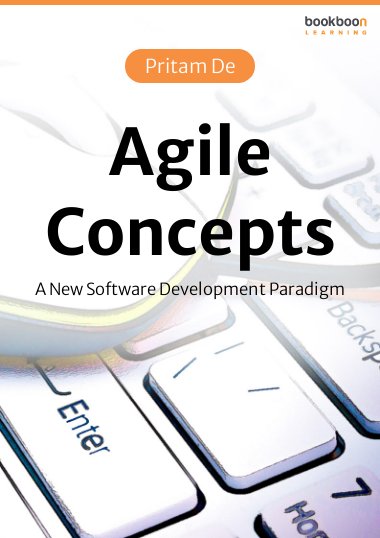Ever wondered why some organizations are more nimble and able to adapt to change faster than others? Do they do things differently and better than others? Yes, the answer is Agile. Agile is a new paradigm in software and product development. It is not only a framework but a mindset. Agile emphasizes speed, flexibility, and a strong customer focus. Getting Agile right reduces time to market, increases customer satisfaction, and delivers efficiency improvements. Agile leads to agility.
If you are new to Agile or exposed to Agile in some form but want to get deeper, this eBook is the answer. It is a wonderful and easy introduction to the concepts of Agile. The eBook succinctly gives an overview of Agile, Agile thinking, Agile process, various Agile techniques and practices, and major Agile frameworks. Both Agile practitioners and managers/executives who want to grasp the concepts of Agile will find this eBook useful.
About the author
Pritam Dey is a senior IT consultant. He holds an MBA from Univ. of Minnesota (USA) and a Bachelor of Engineering from India. He specializes in Enterprise Architecture, IT Transformation, IT Strategy, Digital Transformation, Cloud Computing Strategy, Solution Architecture, IT Program and Portfolio Management. Mr. Dey has more than 15 years of consulting experience in helping organizations align their IT with business, and derive value out of this alignment. With a design thinking, agile and enterprise architecture mindset, he brings a profound customer centric and systems driven approach to design better business and IT solutions, and helping leverage IT as a strategic tool. He has helped his clients harness technology to make better business decisions, improve efficiency and customer satisfaction. He is adept at driving overall IT Consulting, Delivery & Operations (in sync with the macro organizational plan). He has executed high level consulting engagements to clients in Financial Services, Banking, Insurance, Healthcare, Governments, Not-for-Profit and Logistics across USA, Europe, India, and Middle East.


